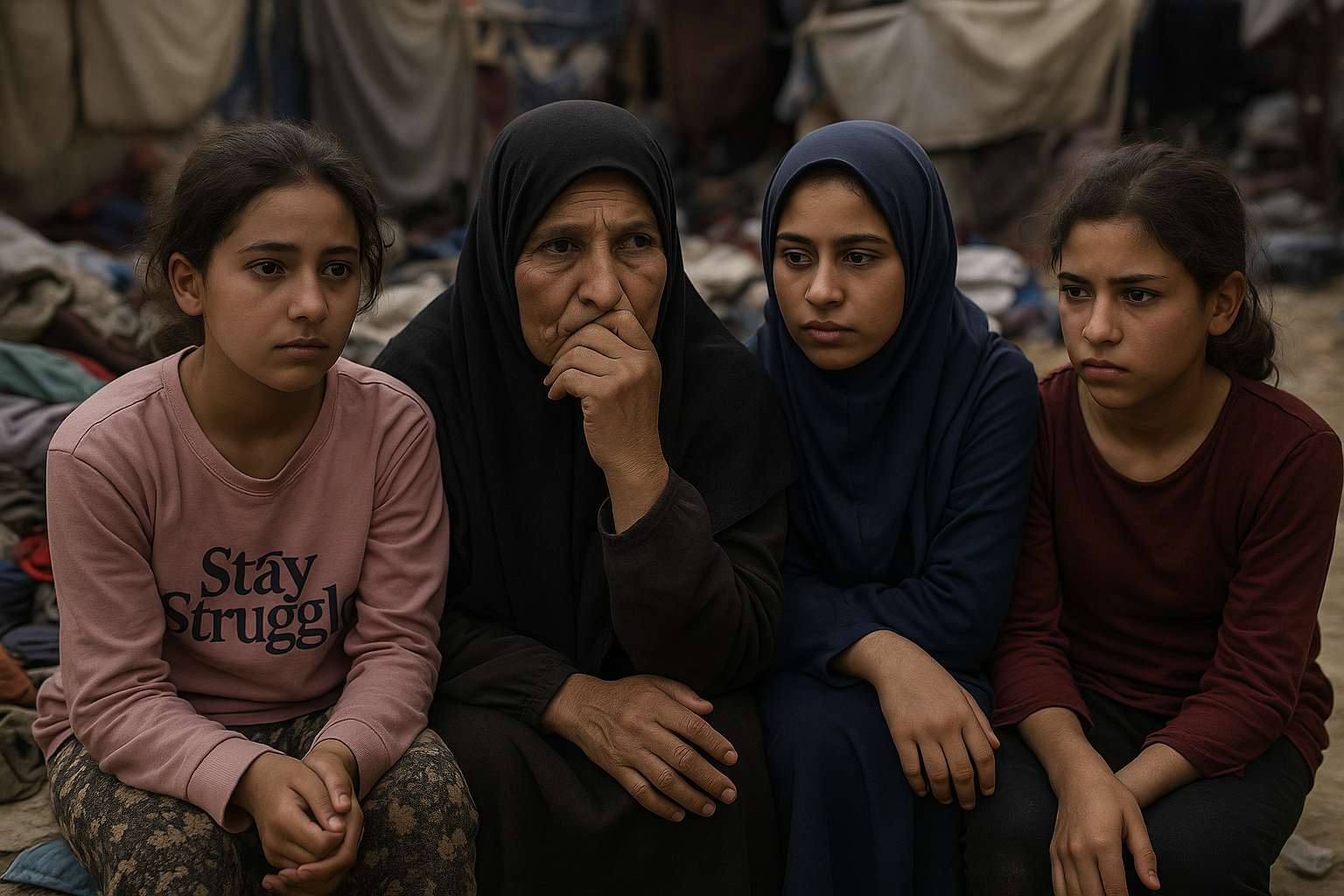UNICEF Urges Immediate Ceasefire as Gaza’s Children Face Unrelenting Catastrophe
UNICEF condemned the renewed wave of bombings and shelling by Israeli forces since the weekend, which have killed at least 14 children in just a few days.

The United Nations Children’s Fund (UNICEF) has issued a powerful and emotional call for an immediate ceasefire in Gaza, warning that the humanitarian catastrophe unfolding in the territory has reached a level of devastation that “is an affront to our shared humanity.”
For more than 700 days, the war in Gaza has left children killed, maimed, displaced, and traumatised. According to UNICEF, an estimated 64,000 children have been killed or injured across the Gaza Strip since the conflict escalated nearly two years ago, including at least 1,000 babies. Thousands more remain missing, trapped under rubble, or suffering from preventable diseases caused by the collapse of Gaza’s health and sanitation systems.
“The world cannot, and must not, allow this to go on,” UNICEF said in its latest statement, denouncing the continued Israeli airstrikes on Gaza City and southern areas of the enclave. “Every child killed is an irreplaceable loss. For the sake of all children in Gaza, this war must end now.”
A Humanitarian Crisis Beyond Imagination
UNICEF’s assessment paints a harrowing picture of daily life for children trapped in Gaza. Continuous bombings, the near-total destruction of infrastructure, and a dire shortage of food, clean water, and medicine have created conditions that the agency described as “inhumane and unconscionable.”
Famine and malnutrition have taken hold in Gaza City and are now spreading further south, where displaced families live in overcrowded shelters or makeshift tents. UNICEF reports that malnutrition rates among infants and young children are at crisis levels, with thousands suffering from wasting and stunted growth after months without sufficient nutrition.
“The crisis of malnutrition, especially among infants, remains shocking,” the agency said. “Months without adequate food have caused lasting harm to children’s growth and development.”
UN humanitarian monitors have also warned of a total collapse of the healthcare system, with hospitals operating at minimal capacity and lacking supplies to treat the wounded. Children with injuries, chronic illnesses, or psychological trauma often receive no care at all.
Intensifying Violence and Civilian Toll
UNICEF condemned the renewed wave of bombings and shelling by Israeli forces since the weekend, which have killed at least 14 children in just a few days. Gaza City and surrounding areas have seen some of the heaviest attacks in months, forcing tens of thousands to flee yet again—often with nowhere safe to go.
“Children are paying the heaviest price in this war,” the agency stated. “Many have lost their entire families, their homes, and their futures.”
International law experts and human rights groups have echoed UNICEF’s call, urging all parties to uphold their obligations under the Geneva Conventions and international humanitarian law. These laws require that civilians, including children, be protected in armed conflict and that humanitarian aid be allowed to reach those in need.
Call for Humanitarian Access and Accountability
UNICEF reiterated that humanitarian access must be guaranteed across all crossings and routes into Gaza to allow food, water, and medical aid to reach civilians. The organisation warned that deliberately blocking or restricting aid constitutes a violation of international law.
“The principles of distinction, proportionality, and precaution must guide all military actions,” the agency said. “Civilians who cannot, do not, or choose not to evacuate combat areas remain civilians and must always be protected.”
UNICEF called for an urgent humanitarian corridor to facilitate the safe passage of aid and to ensure the delivery of supplies “at the scale desperately needed by all Gazans, especially children.”
Path to Peace and Protection
UNICEF welcomed ongoing diplomatic efforts to broker a ceasefire and renewed appeals for a comprehensive plan for peace in Gaza and the wider region. Such a plan, the agency stressed, must include:
-
An immediate ceasefire to stop the bloodshed.
-
The release of all hostages held by armed groups.
-
The unhindered flow of humanitarian aid through all available border crossings.
-
The rebuilding of Gaza’s destroyed infrastructure, including hospitals, schools, and water systems.
-
A renewed commitment from all sides to protect children and civilians under international law.
“The need for a ceasefire could not be more urgent,” UNICEF stated. “This war has cost too many lives, shattered too many futures, and inflicted deep scars on generations to come.”
A Plea for Global Responsibility
As international outrage grows, UNICEF’s statement serves as a stark reminder of the human cost of the conflict — and of the world’s collective responsibility to act. The agency urged the global community to move beyond words of concern and take immediate, coordinated action to end the violence and protect Gaza’s children.
“For more than 700 days, children in Gaza have been killed, maimed, and displaced in a devastating war,” the agency concluded. “Every day without peace is another day of suffering for thousands of innocent children. This war must end now — for their sake, and for the sake of our shared humanity.”










